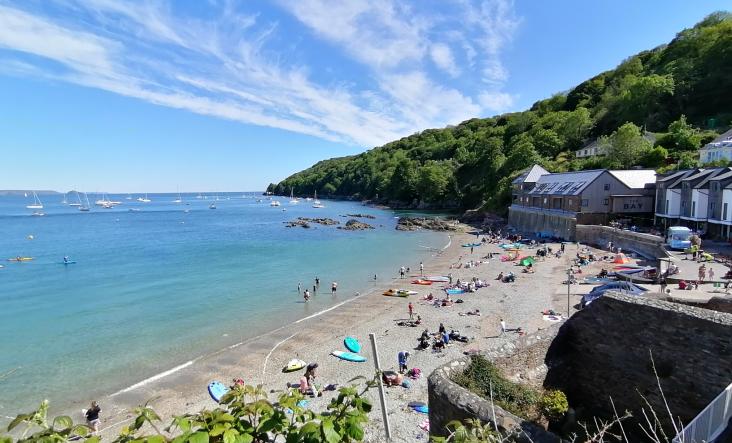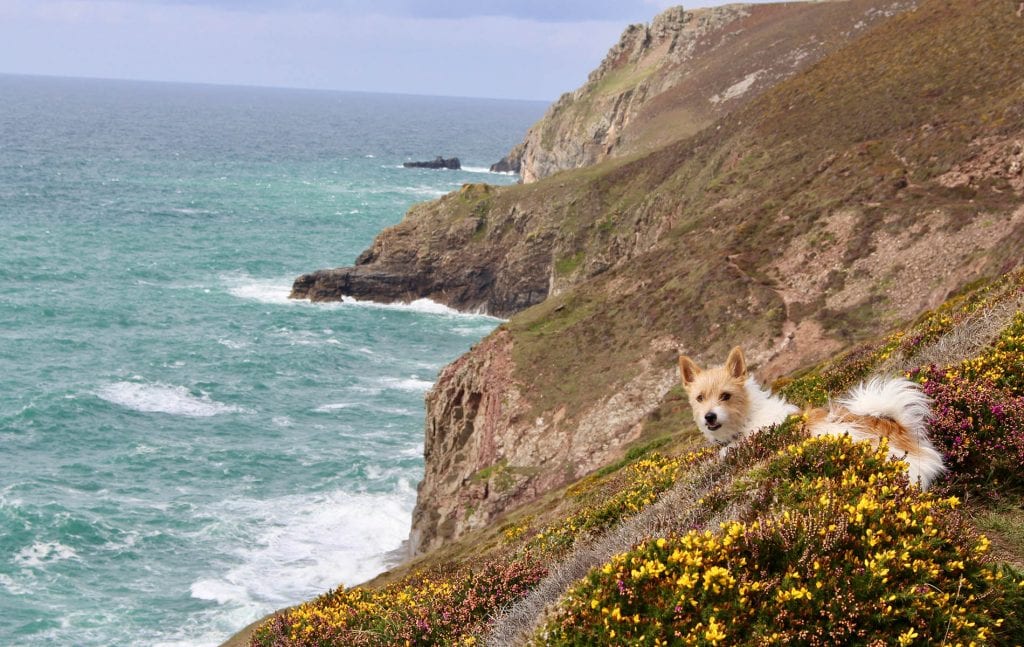When the coronavirus pandemic hit in March 2020, the landlocked among us felt keenly the sudden loss of access to the sea during the hardest days of the deepest lockdown. Cornwall has over 300 miles of coastline, much of it wild and uninhabited by humans, which makes it all the more appealing. When the chips are down – and even when they’re not – we head north, south or west for a breath of fresh sea air and a beach.
Humans have always gravitated towards water for health reasons, from the Romans and their baths, to the Victorians and their beloved seaside resorts. Here in 21st century Cornwall, we turn to coastal walks, sea swimming and watersports such as stand-up paddleboarding (SUP).
And there are hard facts to explain why proximity to water is good for you, both physically and psychologically. Here’s the science: research has shown how the negative ions in sea air accelerate your ability to absorb oxygen, and balance your levels of serotonin, a body chemical linked with mood and stress. At the same time, the sound of the sea alters the wave patterns in the brain, lulling you into a deeply relaxed state. As a result of all this ambient goodness, you’ll be likely to sleep better at night.
Author Dr Easkey Britton is a champion surfer, a brand ambassador for the Eden Project and Cornish surfwear company Finisterre, and an environmental scientist with a particular interest in the field of Oceans and Human Health (OHH). Easkey views the sea as a source of mental and physical wellbeing, and her handy guide, ‘50 Things To Do By The Sea’, explores what the sea does for us and how we can repay it. “Water has a pull on every human being,” she says. “There is really strong evidence to support the idea that the coast is the most strongly restorative for humans of all the natural environments. It’s a great place to be alone, as well as in company, and engages all our senses, so we are more in our bodies and less in our heads, leaving us feeling calmer and more relaxed.”
There are names for this phenomenon, most of which focus on the colour most associated with the sea. Blue is by far the most popular colour with people the world over, and according to marketing experts is associated with qualities such as calm and openness.
The Blue Mind theory was popularised by marine biologist Dr Wallace Nichols, who in 2014 published his findings on the deep connection between humans and water. “We are drawn to water, because we come from, and are still largely made of water,” he said. “In fact, the human body is about 60% water, the brain 75%. When you see water, or hear water, it triggers a response in your brain that you’re in the right place.”
The “blue health” phenomenon was also at the heart of a €6m investigation by the University of Exeter into the positive effects of coasts and rivers on our general wellbeing. BlueHealth 2020 was a research partnership with seven other European countries, based at the European Centre for Environment and Human Health, in the Knowledge Spa at the Royal Cornwall Hospital in Truro.
Europe has 91,000 km of coastline, and more than half of its population lives within 50km of the sea, with the average city-dweller just 2.5km from a freshwater source such as a river, lake or canal. The project explored the benefits of dockland regeneration in Estonia, flood-proofing in the Netherlands and canal cycle paths in Italy – and, of course, coastal walking here in the UK. The project wrapped up in December, and will be used to inform decision-making in healthcare, public health and town planning, bearing in mind how health should be considered when improving access to aquatic environments.
Simply put, a trip to the sea gives us the downtime we so desperately need from busy lifestyles and devices. Its gentle environment envelops us and entices us into a state of mindfulness, as the sounds, sights and smells around us erase all tension from our lives.
Take a dip and emerge feeling invigorated, washed clean off the daily grime. And it’s not just for summer: take inspiration from the Bluetits Chill Swimmers, a UK-wide movement of women without wetsuits bathing year-round for physical, mental and social benefits, with several groups in Cornwall.
Perhaps all this is why we gravitate to the ocean for special events: weddings, baptisms, scattering of ashes. And, of course, holidays. See you down the beach?


